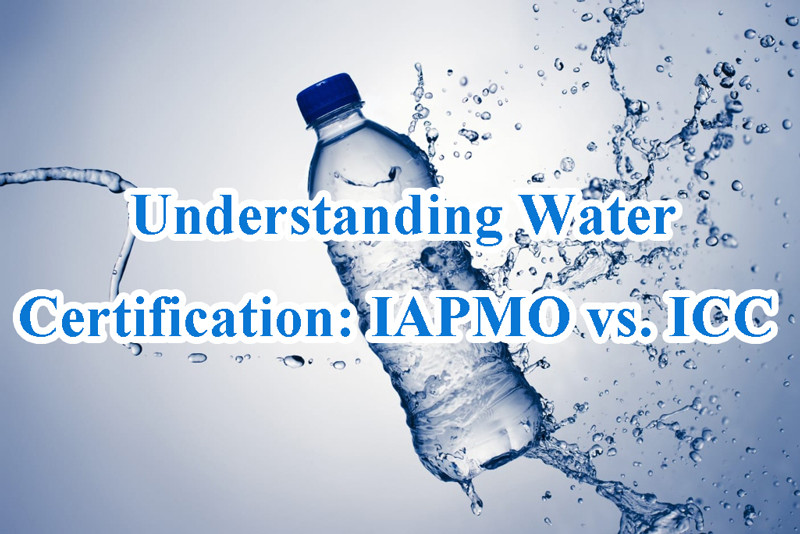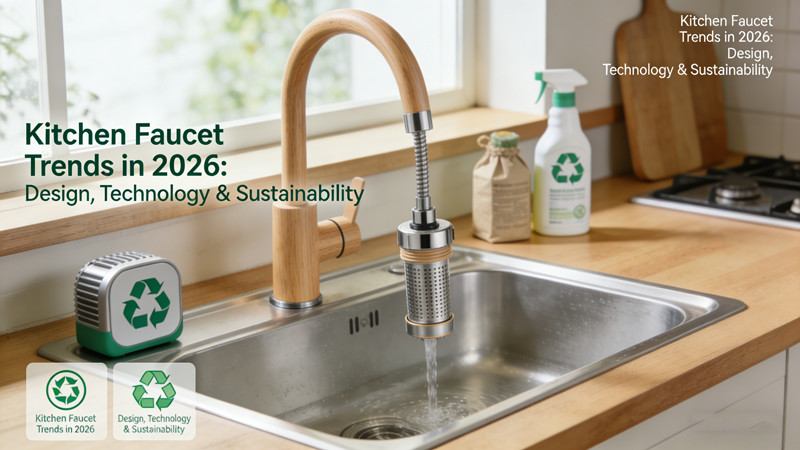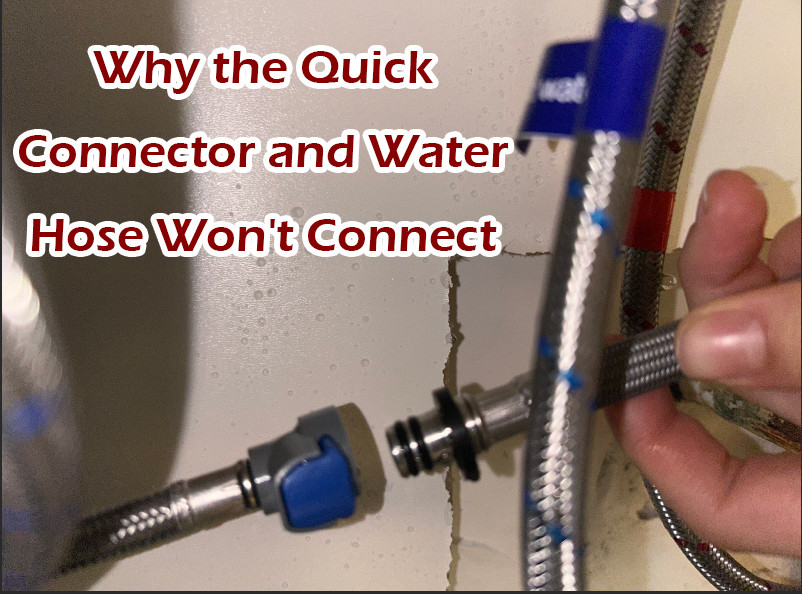
Water is a critical resource that touches every aspect of human life, from personal hygiene and health to industrial processes and agriculture. Ensuring that water systems and products meet safety, quality, and efficiency standards is essential. This is where water certification bodies like IAPMO (International Association of Plumbing and Mechanical Officials) and ICC (International Code Council) come into play. Both organizations are recognized authorities in the plumbing and mechanical sectors, but they serve distinct roles and offer different types of certifications. Understanding the differences between IAPMO vs. ICC can help industry professionals, manufacturers, and consumers make informed decisions.
IAPMO: Ensuring Safe Plumbing and Mechanical Systems
IAPMO, established in 1926, is a globally recognized organization that develops and promotes plumbing, mechanical, and solar codes. Its mission is to protect public health and safety through the implementation of comprehensive standards and certification programs.
One of IAPMO’s most significant contributions to the industry is the Uniform Plumbing Code (UPC) and the Uniform Mechanical Code (UMC). These codes are developed using an open consensus process that involves a wide range of stakeholders, including industry professionals, government officials, and the public. The UPC and UMC are widely adopted in the United States and serve as model codes in many other countries.
IAPMO’s certification programs are designed to ensure that plumbing and mechanical products meet the rigorous standards set forth in their codes. Some of the key certifications offered by IAPMO include:
- UPC Certification: This certification is awarded to products that comply with the Uniform Plumbing Code. It covers a wide range of products, including pipes, fittings, fixtures, and valves. Products bearing the UPC mark are recognized for their safety, durability, and performance.
- WaterSense Certification: IAPMO is one of the certification bodies authorized to certify products under the U.S. Environmental Protection Agency’s (EPA) WaterSense program. This program focuses on water efficiency, and products with the WaterSense label help consumers reduce water use without sacrificing performance.
- Green Certification: IAPMO also offers green certification for products that meet sustainability criteria, such as reduced water consumption and the use of environmentally friendly materials. This certification aligns with the growing demand for green building practices and helps manufacturers demonstrate their commitment to environmental responsibility.
ICC: Building Codes and Standards for the Built Environment
The International Code Council (ICC) is another influential organization in the field of building safety and standards. Founded in 1994, ICC is known for developing a comprehensive set of building codes that are widely adopted across the United States and in many other countries. The ICC’s codes cover all aspects of building construction, including structural, fire safety, energy efficiency, and plumbing.
The most notable of these codes is the International Plumbing Code (IPC), which provides minimum regulations for plumbing systems to ensure safe and sanitary conditions. The IPC is often adopted by jurisdictions that seek to ensure uniformity in plumbing regulations while allowing for flexibility in design and innovation.
ICC’s certification programs are designed to verify that products, professionals, and building systems comply with the requirements set forth in the ICC codes. Some of the key certifications offered by ICC include:
- ICC-ES Evaluation Reports: The ICC Evaluation Service (ICC-ES) provides evaluation reports that verify the compliance of building products and systems with the applicable codes and standards. These reports are highly regarded by code officials, architects, and engineers as they provide assurance that a product or system meets the necessary safety and performance criteria.
- ICC Certification for Professionals: ICC offers a range of certifications for building professionals, including plumbers, inspectors, and code officials. These certifications demonstrate a professional’s knowledge and expertise in the relevant codes and standards, enhancing their credibility in the industry.
- Green Building Certification: Like IAPMO, ICC also offers certifications related to green building practices. The ICC’s green certification programs focus on promoting energy efficiency, water conservation, and sustainable construction practices. These certifications are aligned with the ICC’s commitment to advancing safe, sustainable, and resilient building practices.
Comparing IAPMO vs. ICC Certifications
While both IAPMO and ICC play crucial roles in ensuring the safety and quality of plumbing systems and products, their focus and scope differ in several key areas.
- Code Development and Adoption:
- IAPMO is primarily focused on the development of plumbing and mechanical codes, with a strong emphasis on water safety and efficiency. The UPC and UMC are IAPMO’s flagship codes, widely recognized for their comprehensive coverage of plumbing and mechanical systems.
- ICC, on the other hand, develops a broader range of building codes, including the IPC, which covers plumbing but also integrates with other aspects of building construction, such as structural and fire safety. The ICC codes are designed to work together to create a cohesive regulatory framework for the built environment.
- Certification Programs:
- IAPMO’s certification programs are highly specialized, focusing on plumbing and mechanical products. The UPC certification, WaterSense certification, and green certification offered by IAPMO are specifically designed to address the needs of the plumbing industry.
- ICC’s certification programs, while also including plumbing products, are more diverse and cover a wider range of building systems and professionals. The ICC-ES Evaluation Reports are particularly valuable for manufacturers seeking to demonstrate compliance with multiple codes and standards across different jurisdictions.
- Global Influence:
- Both IAPMO and ICC have a global reach, but IAPMO’s influence is particularly strong in the plumbing industry. The UPC and UMC are used as model codes in several countries, and IAPMO’s certifications are recognized by international markets.
- ICC’s codes and certifications are also globally recognized, but their influence extends beyond plumbing to encompass the entire spectrum of building safety and performance. The ICC codes are often adopted by countries seeking to modernize their building regulations and promote safe, sustainable construction practices.
Conclusion: Choosing the Right Certification
When it comes to water certification, both IAPMO and ICC offer valuable services that contribute to the safety, efficiency, and sustainability of plumbing systems. The choice between IAPMO and ICC certifications often depends on the specific needs of a project, product, or professional. For manufacturers of plumbing products, IAPMO’s certifications, particularly the UPC, may be more relevant due to their focus on plumbing standards. For those involved in broader building projects or seeking to demonstrate compliance with a wide range of codes, ICC’s certifications, including the IPC and ICC-ES Evaluation Reports, may be more appropriate.
Understanding the differences between these two organizations can help industry professionals navigate the complex landscape of building codes and certifications, ensuring that they meet the highest standards of safety and performance
 WOWOW Faucets
WOWOW Faucets





